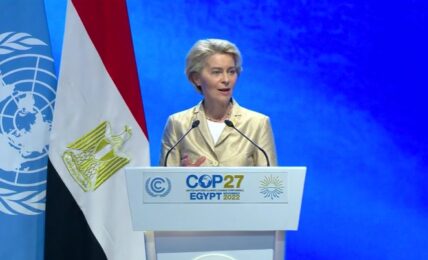
The U.S. Internal Revenue Service (IRS) announced the allocation of $6 billion in tax credits to more than 140 projects aimed at funding infrastructure projects that add to U.S. clean energy and critical materials production and industrial decarbonization capacity.
The new allocations are funded by the Inflation Reduction Act (IRA), and are the second round of IRA tax credits being made through the Qualifying Advanced Energy Project Credit (48C) program, which provides investment tax credits of up to 30% for advanced energy projects that meet prevailing wage and apprenticeship requirements. The first $4 billion round was announced in April 2024, with the second round bringing the total number of projects selected to around 250.
Initially launched in 2009, the 48C program was expanded with a $10 billion investment under the IRA, including at least $4 billion earmarked for projects in energy communities with closed coal mines or coal plants. The second round includes allocations of around $2.5 billion to approximately 50 projects in these communities.
Nearly two-thirds, $3.8 billion, of the tax credit allocations under the new round were targeted at projects supporting the 48C program goal of expanding clean energy manufacturing and recycling capacity by supporting the buildout of U.S. manufacturing capabilities critical for clean energy deployment and low-emissions materials. Projects selected spanned areas ranging from clean hydrogen electrolyzers, fuel cells and subcomponents, grid equipment and electric vehicle components to batteries, nuclear power, solar PV, and wind energy.
The awards also included $1.5 billion in allocations made to projects supporting the objective to expand critical materials processing and refining capacity, such as facilities that refine and process lithium, copper, and rare earth elements, and recycling of lithium-ion batteries, copper and aluminum, and rare earth elements, and $700 million for the objective of driving process efficiency and reducing GHG emissions at US industrial facilities, with projects spanning a broad range of industrial sectors and anticipated to result in the elimination of 2.8 million tons of CO2 once implemented.
The 48C program is managed by the IRS with assistance from Department of Energy’s (DOE) Office of Manufacturing & Energy Supply Chains (MESC).
In a social media post announcing the new allocations, Ashley Zumwalt-Forbes, Deputy Director for Batteries and Critical Materials at the U.S. Department of Energy (DOE), said:
“On my final day as a Fed, I’m excited to share the announcement of Round 2 of the 48C tax credit. This round allocates a total of $6 billion across more than 140 projects in over 30 states. Particularly noteworthy is the allocation of $1.5 billion towards critical materials recycling, processing, and refining projects – a sector that has outsized importance in our nation’s economic security. “



